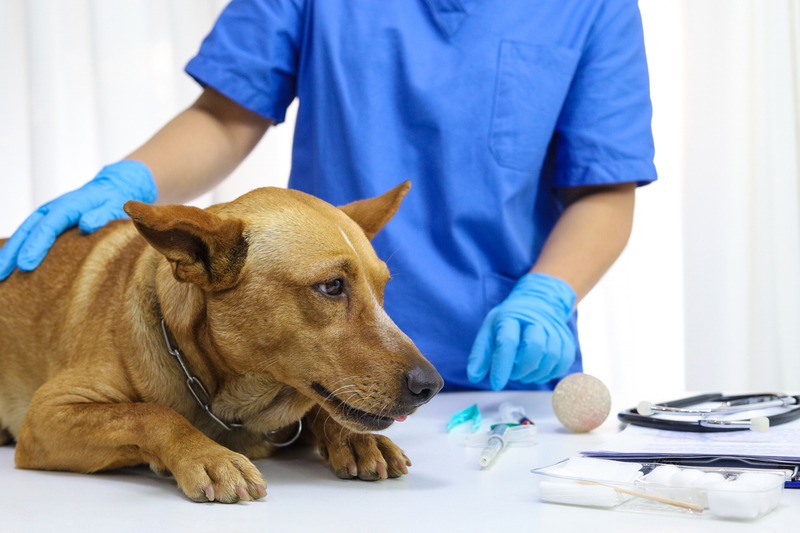When it comes to our furry friends, ensuring their health and well-being is a top priority. Just like with humans, preparation is critical to successful outcomes, mainly when it involves pet surgery. A crucial part of this preparation is addressing parasitic issues that can complicate a procedure or the recovery process. Let’s talk about the essential pre-surgery parasite treatments to keep our pets in tip-top shape for any medical procedure they may need.
What Are Parasites in Pets
First, we’ve got to get to grips with the parasite menace. Parasites in pets can range from the common fleas and ticks to more insidious internal parasites such as heartworms, roundworms, and hookworms. These unwelcome guests can cause a variety of health problems for pets and can even affect the outcome of a surgical procedure.
External Parasites
External parasites live on or in the skin of your pet. Fleas and ticks are notorious for causing skin irritation, allergic reactions, and can transmit diseases. They can easily compromise a surgery site, leading to infection or other complications.
Internal Parasites
Internal parasites, on the other hand, take residence within your pet’s internal organ systems. They can lead to malnutrition, anemia, or even damage to vital organs, which is not something you want when your pet is heading for surgery.
Pre-Surgery Parasite Treatments for Pets
So, what can be done to tackle these pesky parasites before pet surgery? Well, here’s a general run-through:
Flea and Tick Treatments
It’s usually recommended to treat for fleas and ticks before a surgical procedure to prevent any additional stress on your pet’s system. Your vet will likely suggest:
-
A thorough examination to check for the presence of fleas and ticks.
-
Topical, oral, or collar-based treatments to eliminate any parasites.
-
A follow-up check to ensure that the treatment has been effective.
Deworming Protocols
Deworming is typically part of the standard veterinary care and is particularly important before surgery to prevent complications from internal parasites. This might include:
-
Stool analysis to identify any existing intestinal parasites.
-
Prescribed medication specific to the type of worms present.
-
Post-treatment stool analysis to ensure all parasites have been eradicated.
Heartworm Prevention
Heartworm is a serious concern and can be fatal. Pre-surgical treatment can include:
-
Blood tests to check for heartworm.
-
If negative, the continuation or start of preventative medication.
-
If positive, a treatment plan will need to be developed prior to surgery.
The Relevance of Timing in Pre-Surgery Parasite Treatments
Understanding the critical role of timing can significantly affect the success of pre-surgical preparations. Specifically, when it comes to parasite treatments before surgery, timing holds the key:
-
Optimal Health: Starting treatments in advance ensures your pet’s optimal health and readiness for surgery.
-
Parasite Elimination: Early treatment guarantees complete eradication of parasites prior to the operation.
-
Medication Side Effects: Administering treatments early helps prevent potential side effects from interacting negatively with the surgical process.
-
Seamless Recovery: Without parasite-related complications, your pet can have a smoother post-operative recovery.
Don’t Procrastinate on Parasite Treatments
-
Proactive Approach: Tackle parasites early to prevent unnecessary surgical delays.
-
Veterinary Guidance: Collaborate with your vet to plan a treatment timeline that best suits your pet.
Always remember, when preparing for surgery, precursory parasite control isn’t just a precaution—it’s a necessity.
Safe Surgery and Recovery: Ensuring a Parasite-Free Pet
A pet free from parasites is considerably more likely to undergo trouble-free surgery and enjoy a rapid recovery. Let’s delve into the particulars:
-
Lower Risk of Infection: By eradicating external parasites, the potential for microbial invasion at the incision site significantly diminishes, safeguarding against post-surgical infections.
-
Improved Healing: Parasites internally can sap your pet’s immune defenses, inhibiting recovery. A robust immune system is vital for efficient healing following surgery.
-
Better Overall Health: Addressing parasitic issues leads to enhanced general health. This primes your pet for the anesthetic procedure and the overall surgical stress they must withstand.
Given these points, it’s evident that the battle against parasites is a cornerstone in pre-surgical preparation, ultimately contributing to your pet’s swift and successful recovery.
Post-Surgery Care
Once your pet has successfully gone under the knife, it’s time to think about recovery. In addition to a parasite-free environment, therapies like pet laser therapy can come into play. Pet laser therapy is a non-invasive treatment that uses light to reduce pain and inflammation and speed up healing, making it a perfect companion to a parasite-preventative regime.
Pet Vaccinations and Their Role in Pre-Surgery
Up-to-date dog and cat vaccinations are often required before any surgery can be scheduled. This prevents diseases that could complicate the procedure or the healing process. Think of vaccinations as the first line of defense against some of the more nasty bugs that could put a damper on your kitty’s path to health.
Choosing the Right Veterinarian
When it comes down to the nitty-gritty, finding a veterinarian you trust to guide you through the process of pre-surgery parasite treatment is essential.
-
Look for a vet with a clear protocol for parasite treatment before surgery.
-
Choose a vet who stays up-to-date with the latest treatment options.
-
Seek out a clinic that prioritizes communication so you’re kept in the loop.
Final Thoughts
As the day for your pet’s surgery nears, remember that pre-surgery parasite treatment is a critical step in ensuring the best possible outcome for your furry family member. By working closely with your vet, staying informed, and taking timely action against parasites, you’re setting the stage for a successful surgery and a smooth recovery. After all, a healthy pet is a happy pet – and that’s what we all want for our four-legged friends.


